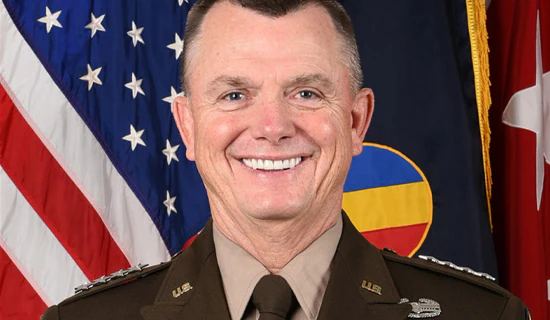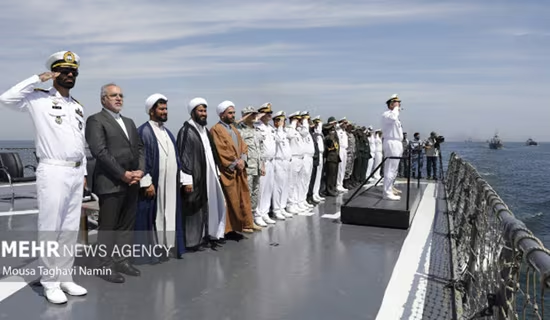Introduction
The Russian media has drawn attention to Polish activity in the Ukraine conflict. It has scorned Polish claims on the Russian exclave of Kaliningrad. It has viewed Joe Biden's visit to Warsaw as a prelude to Polish intervention at America's behest as the United States will be unable to secure a consensus within NATO. The Polish offer to send peace forces will allegedly be the guise that such intervention takes. These Polish actions are primarily motivated by Poland's desire to be the dominant force in the area and perhaps physically regain areas that were part of Poland prior to the outbreak of the Second World War.
It is hard to say whether Russia is generally concerned about Poland. One Russian military expert dismissed Poland's ability to act against Russia unless of course it enjoyed American backing and that meant the Americans would be effectively running the Polish Army.[1] However, the accusation that Poland is casting covetous eyes on areas that are now part of Ukraine could have a double propaganda benefit. It is difficult to stir Russian opinion against Ukraine – after all Putin claims that Russians and Ukrainians are the same people. Russo-Polish relations are much more clear-cut. Poland is seen as the Slavic country that broke ranks to side with the West and pose as a bulwark against Russia, while religiously it sent a similar message by embracing Catholicism rather than Orthodoxy.
It also sends a message to Ukraine that it is better to reach an accommodation with Russia on Moscow's terms before the Ukrainian state disintegrates and Warsaw annexes Western Ukraine. A report on attempts to introduce the Polish factor as a consideration in the current fighting in Ukraine follows below:

Ukraine's Volodomyr Zelensky and Poland's Andrzej Duda (Source: Regnum.ru)
Ukraine And Poland Are Colluding Against Russia Over Kaliningrad
The former Polish Land Forces Commander,Waldemar Skrzypczak called Kaliningrad an "occupied territory" since 1945 and the land properly belonged to Poland. Russian diplomats ridiculed the claims. Russian Ambassador to Warsaw, Sergey Andreev called Skrzypczak's claims a flight of fancy:
"It's a tradition. Retired generals here [in Poland] love to chat about all sorts of things and get attention, prove they still 'have some fuel in tanks.' Well, what can you do. People are no longer in business, they aren't responsible for their words, thus they sense a total freedom of imagination,"[2] Russian Foreign Ministry spokeswoman Maria Zakharova was
She briefly remarked that Skrzypczak "will back out from the question of Kaliningrad's affiliation in the same manner as he has raised it." The Kaliningrad administration advised the Polish general to study history and learn that the city has never belonged to Poland
Russia charged that Oleksiy Danilov, the Secretary of Ukraine's National Security and Defense Council of Ukraine,had hopped on the bandwagon by stating that .Poland's territorial claims to Kaliningrad could prevent Moscow from carrying out the special operation in Ukraine.[3]
Poland Is Awaiting A Favorable Situation To Carve Up Ukraine
Russian experts charged that Poland, while ostensibly aiding Ukraine has ulterior motives and is not a friend of Ukraine. Eduard Popov the director of the Center for Public and Information Cooperation commented on the March 15, 2022 meeting in Kyiv between the Prime Minister of Poland Mateusz Morawiecki, the Polish Deputy Prime Minister and Chairman of the ruling Law and Justice Party (PiS) Jaroslaw Kaczynski, the Czech Republic's Prime Minister Petr Fiala, and Slovenia's Prime Minister Janez Jansz with President Volodymyr Zelensky of Ukraine.
In the West, this was seen as a show of solidarity with Ukraine, as the visitors came to a Kyiv while it was under Russian bombardment. Popov saw things otherwise :" Throughout its history, Poland has always sought to dominate, has always built its empire. And now, under the auspices of NATO and the EU, it is creating a new configuration, a kind of new empire, trying to establish control over Ukraine, Belarus and other countries. For example, Moldova and the Baltic countries within the framework of the Intermarium concept. Poland sees itself as a leader, as a quasi-empire between the Baltic and Black Seas. I have had occasion to communicate with public figures, politicians, who, in turn, are closely connected with the Polish political circles, and hear such confessions that the Poles are waiting for a favorable situation for the division of the Ukrainian heritage."[4]

The March 15 meeting between Zelensky and three European prime ministers (Source: President.gov.ua)
The political scientist and prolific columnist Gevorg Mirzayan believes that Poland's involvement in Ukraine is designed to secure an upgrade to its status within the NATO alliance at the minimum, while keeping an eye on securing more maximalist objectives such as resuscitation Poland's imperial ambitions. Mirzayan wrote: " Warsaw is not about to miss the historic opportunity that it presently has in Ukraine. And the Poles are ready to exploit this opportunity in various ways, depending on what Russia allows them to do. At a minimum they want to strengthen their position as the eastern outpost of NATO and formulate the Alliance's agenda on the Ukrainian issue. At the maximum, they strive to 'restore historical justice' and restore some of the 'native Polish lands'."
Poland berates Russian imperialism argues Mirzayan because it envies Russia's ability to realize its aims, whereas Poland is frustrated by its inability to achieve similar imperial aims. The Poles, however, are playing a long game :
"This is why the Poles acted gradually and systematically: they designated their priority sphere of influence (Belarus, the Baltics and Ukraine), and after that, for many years, worked in this space through various foundations, educational programs, summits and seminars. They were presenting themselves as a mediator between Europe and the semi-civilized East."
Now the impossible dream appears within Poland's grasp: "or maybe even once a century, a state can get such a thing, called an historic opportunity, i.e. a moment when all the stars and variables align in such a way that dreams (including that of the restoration of "historical justice") may come true. Poles may have such a chance in 2022 in Ukraine. At the very least, the Poles hope to acquire needed resources, and at the most – needed territories."
An opening wedge to achieving this policy is the Polish proposal to send peacekeeping forces [shot down by NATO]. Poland, observes Mirzayan could make a deal with Russia:" Russia is currently engaged in talks with the Ukrainian authorities, but Kiev refuses to discuss the Kremlin's proposals in essence and is betting on protracted military action. The Kiev regime is systematically destroying the remaining foundations of Ukrainian statehood. Experts do not rule out that the outcome of such an approach may be the total disintegration of Ukraine. After that, as some in Poland hope, an offer can be made to Russia to hand over the western, Russophobe-Maidan-oriented part of Ukraine under the Polish control.
"If the Kremlin agrees [to such a plan], Warsaw could deploy peacekeepers and, thus, gain territory under its mandate. This territory could become a source of resources, above all labor and agricultural ones."[5] Once Ukraine disintegrates fully, Poland can formally annex Western Ukraine.
Colonel Anatoly Matviychuk, a former Russian special forces officers saw the peacekeeping gambit as a front for Polish expansionism, but as opposed to Mirzayan, he believes that Russia would never make a deal with an "aggressor country":
"Poland is historically resentful of Russia; it has decided that the moment has come when it can make a revenge on Russia for the oppressions of the past century.
"In 1939, we took the lands that Warsaw perceives as belonging to it. They are called the “Kresy Wschodnie” (i.e. the lands of western Ukraine, western Belorussia and Lithuania, which was part of Poland from 1918 to 1939). The Polish authorities believe they can reclaim these lands. This is the goal of the prepared peacekeeping mission."[6]

Polish map showing the Kresy Wschodnie in orange (Source: Tyflomapy.pl)
Stanislav Stremidlowski, an expert on Poland interviewed on the Ukraina.ru outlet predicted that the expulsion of Russian diplomats from Poland would soon be followed by a severance of diplomatic ties between Poland and Russia. Following that, Polish troops would enter Western Ukraine.in the guise of peacekeepers. This of course is a misnomer because the Poles will not separate the Ukrainians and the Russians, and Russia has not been approached.
While the Polish public would object to such an adventure, the person calling the shots in Poland is Jarsoslaw Kaczynski, who "perceives himself as [interwar Polish leader Jozef] Pilsudski" and would like to emulate Pilsudski by taking Lviv. He and other Polish politicians await the go-ahead from Washington.
Despite their lip service to Ukrainian sovereignty Poland understands the flimsy foundations of Ukrainian statehood. " All the suffering by the Ukrainians on behalf of their statehood is virtual. One can say 'Glory to Ukraine!' many times and frequently, but still do nothing to make the state happen. Poles understand this." Therefore, "if the Poles are offered a scheme, that at some point appears tempting to them, they may be unable to restrain themselves and will start swinging their sabers."[7]




